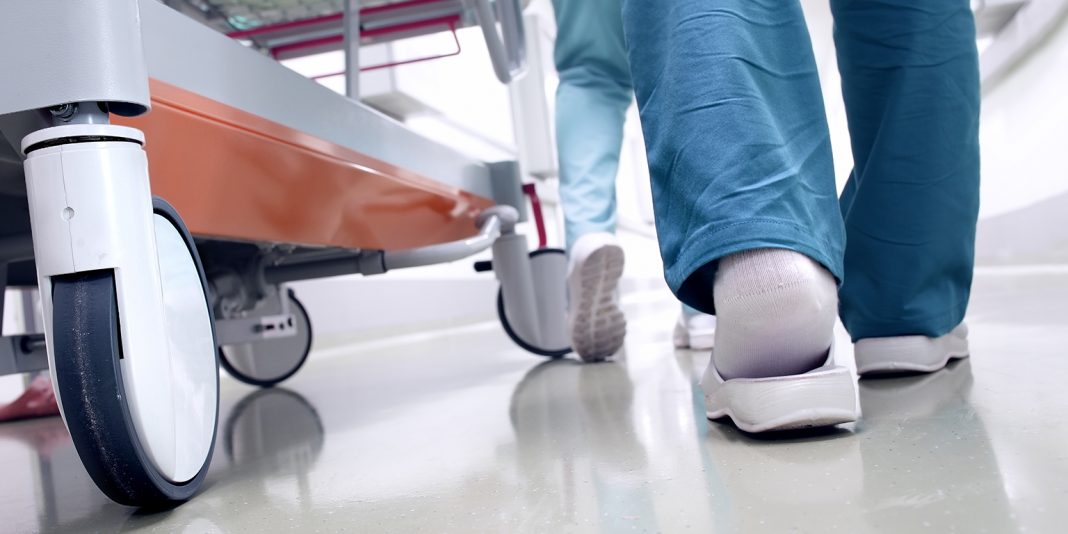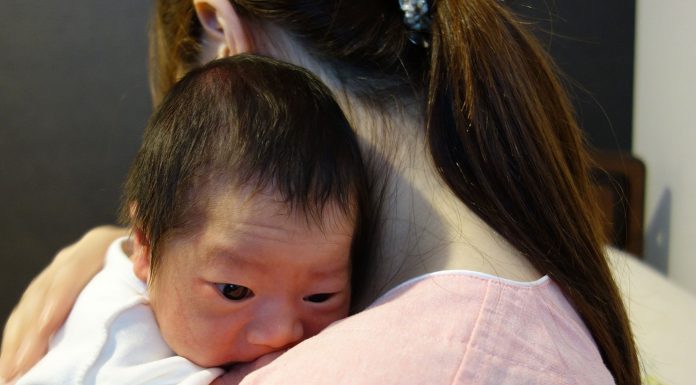STYLE, STABILITY OR SUBSTANCE – WHAT SHOE TYPE SUITS BEST?
Google ‘shoes for nurses’ and a plethora of options pop up from rocking soles to canvas sneakers complete with images of teddy bears in nursing uniforms.
“If part of the job is standing all day, then you do need a good shoe which is going to take into account everyday walking and activities and is going to last a period of time,” says Rome.
The canvas sneakers may be sweet but Rome notes they probably break down very easily and end up being more costly than investing in a good quality shoe.
Rome also has mixed feelings over Croc-style shoes. They have good cushioning, a good wide toe box, and are pretty good for standing. However, he is unsure whether the foot safety and stability is as effective in a slip-on sandal-type Croc shoe as it is in a fully enclosed shoe.
Then there is the new fashion for shoes specifically designed and manufactured to be unstable. Rome says the concept behind the shoes – with curved or rocker style soles – is that if you make the person unstable, you make their muscles work better or more efficiently. So they advertise that you can actually lose more weight because you are using more muscles.
Because you are causing postural instability the risk is – for an older person, at least – that it can cause you to fall.
Rome says his department has done some research into different types of unstable footwear. He said the immediate effects were instability but the long-term effects of wearing them were unclear and an area for further research.
(Update: In January this year, a lawsuit was filed in the US against the manufacturer of one of the most popular ‘rocker sole’ brands – Skechers ‘Shape-up’ or ‘Tone-up’ shoes – on behalf of 37 people who claim to have suffered serious injuries from wearing the shoes, which are designed to create instability and change the wearer’s gait.)
Regarding cross-trainer or sport shoes, Rome says they are very durable, certainly give support, and provide cushioning. Also, many of them are lace ups or have some kind of strapping mechanism, have a moderate heel height, and good support at the back. So yes, they are a good option as well as other shoes that meet the good footwear criteria listed below.
ADVICE ON GOOD FOOTWEAR FOR NURSES ON THEIR FEET ALL DAY
Comfortable
Your shoes need to be comfortable, sturdy, and good quality if you are going to be on your feet for long periods. For example, on a shift for up to 12 hours, you should have room in your shoes to allow for feet or ankles swelling.
A good toe box
A wide toe box allows room for your toes to move around and can accommodate any swelling. Think of the scenario of trying to put your fingers into a very narrow toe box for a very long time and how it would feel. The long term consequences are toes crunching up, bunions, hard-skin building up, and corns.
Lace-up or velcro
Adjustable tightness shoes are preferable simply because if the foot swells, then you can untie or unfasten the laces or straps and loosen the shoe a little.
Moderate/neutral heel
Wearing high heels for long periods can result in not only foot problems but also leg problems, knee problems, and lower-back problems. Rome believes in the spirit of moderation, so a slight heel during the working day is probably better than no heel at all.
Good cushioned insole
The insole inside the shoe should have good cushioning – an important aspect of any good footwear. If cushioning starts to wear down, the insole insert should be replaced. If someone is overweight, they should particularly ensure good cushioning material that is able to absorb the additional body weight.
Sole
The sole should be shock-absorbing and firm enough to provide arch support.
A deep heel cup
A deep heel cup ensures the foot can fit nicely inside the shoe and prevents rubbing of the shoe against the Achilles heel
Enclosed shoe rather than sandal/slip-on
While sandals may be great in summer to keep your feet cool, most flat sandals do not provide the stability and support of an enclosed shoe.
COMMON FOOT HEALTH QUESTIONS
When should i seek help?
So now you are wearing well-fitted, suitably supportive and cushioning shoes, but you still end the day with tired feet? When does aching feet tip over from normal to the point you should seek help?
“I think if people start getting pain after 10-15 minutes of standing, then I certainly say you should seek healthcare professional or podiatrist advice,” says Rome.
The pain may be due to the mechanics of the person themselves, their foot type, or musculoskeletal issues related to the way they walk and the impact on the foot’s weight-bearing role. Seeking out expert opinion may result in advice on better footwear or orthotic inserts for your shoes to help those musculoskeletal mal-alignments. If there is a sudden onset of foot pain or a change leading to arthritic-type pain in your feet, then something is not right and it’s very important to seek advice.
Is having aching feet at the end of the day normal?
If you are on your feet for a 12 hour shift, for example, and you find your feet aching afterward, it is probably more to do with standing for long periods of time on hard level surfaces. The problem may simply be related to your occupation. Hence good footwear is essential. On the other hand, it may well be some other problem that is causing those issues.
A pain in the heel … what is plantar fasciitis?
The pain arises from the inflammation of the soft tissue running under the sole of the foot from the heel bone to the base of the toes. Rome says what happens is that you get inflammation or ‘wear and tear’ where the tissue meets the bone and it is a common source of heel pain.
Classic plantar fasciitis is that when you go to bed at night you have no pain but in the morning, as soon as you put your foot in contact with the ground, you get immediate pain. This “first step pain” can last five to ten minutes and diminishes with continued walking, but during the day, the pain may flare up again. Treatments include stretching exercises, foot orthotics, or strapping. Rome says that other forms of treatment have been reported but advice from a health care professional or podiatrist will assist on the best treatment for you.
Are foot problems inevitable after a career on your feet?
No, says Rome. He says all nurses probably know that prevention is better than intervention. So if you look after your feet, that is, know how your feet function, wear good footwear and seek good advice, he can’t see any reason why you should end up with any problems. Ignorance of how the foot functions, poor footwear and not seeking advice – when combined with working on hard level surfaces for many, many years – could potentially lead to problems.
Flat feet equals problems?
Flat feet doesn’t necessarily mean you are going to end up with problems because a lot of people have flat feet and don’t have pain, says Rome. On the other hand, there are people with flat feet who will have pain. His advice is to go and seek advice from a health care professional, like a podiatrist, who will give advice appropriate to you.
Carrying too much weight?
Obesity, if it comes with a co-morbidity like diabetes or gout or metabolic syndromes, is going to have a big impact on a person’s feet and it is essential to seek medical advice. Obesity on its own is also going to have an effect on your feet. Rome advises those with obesity to get good footwear that can support the extra loading on the feet.
Are my old shoes the problem?
Your foot specialist is interested in checking out your work shoes. The age of the shoe is important to evaluate the significance of wear patterns and to determine when replacement is required. The health care professional may consider this information in relation to other information such as occupation, intended purpose of the shoes, and frequency of wear.
Bad shoes lead to bunions?
Yes and no. There is a hereditary factor to developing bunions, but wearing high heels with a narrow toe box for long periods of time adds to the risk of developing those painful bumps on the side of your feet. Think Paris Hilton and Victoria Beckham – just two of the more famous high heel wearers and bunion sufferers?






















